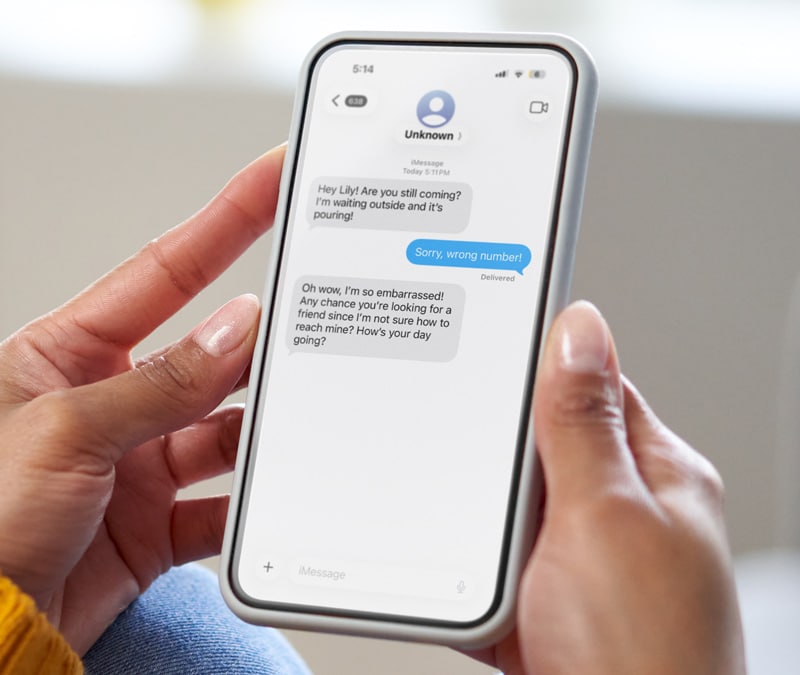Going on an adventure? Watch out for travel booking scams
Booking travel reservations online is easy, but not always safe. Help protect yourself from travel scams.

Are you ready to hit the road? Are you ready to let the wanderlust sweep you off your feet? You're far from alone. Nearly half of Americans plan to take a trip that requires a flight or hotel stay this summer.
But travelers aren’t the only ones prepping for summer vacations. As always, scammers like to spoil the fun. If you’re booking flights, hotel reservations, or tickets online, be careful.
Fake travel booking sites
Airline scammers have been improving their game when it comes to creating fake airline and hotel booking sites. The sites may look legitimate, and—to make the deal look sweeter—they may offer tempting discounts too. But once you enter your credit card information, your money is gone. Of course, your booking was nonexistent to begin with, leaving you without tickets or reservations.
Unfortunately, travel scams are not that uncommon. The Better Business Bureau (BBB) 2023 Risk Report ranks travel scams as the tenth riskiest consumer scam—with a median loss of $543. Nobody wants to go through that. So, let’s learn how to spot and avoid this scam.
How to spot a fake travel booking site
Spotting a fake booking site can be challenging, especially as scammers become more sophisticated. Here are some key tips to help you identify and avoid fraudulent booking websites:
- Check the spelling of URL. Fake sites often have URLs that mimic those of legitimate sites but with slight variations, such as “Travellcity.com” instead of “Travelocity.com”.
- Look for HTTPS. Check if the site uses “https://” at the beginning of the URL. The "s" stands for secure, indicating that the site encrypts your data.
- See is the website works. Legitimate sites generally have fully functional pages and features. Broken links, missing images, or incomplete information are warning signs.
- Use a threat detection tool. Norton 360 can detect unsafe or malicious websites. Take that extra step to help protect you from phishing and malware attacks.
- Don’t pay unless the system is secure. Only enter your payment details on secure, reputable websites. Be wary if the site only accepts unconventional payment methods, such as wire transfers or gift cards.
- Search for reviews. Look up the site on review platforms or forums. Similar to how you’d do it for major ticket resellers like Vivid Seats. Consistent negative feedback or reports of scams are major red flags.
- Don’t pay unless the system is secure. Only enter your payment details on secure, reputable websites. Be wary if the site only accepts unconventional payment methods, such as wire transfers or gift cards.
- Verify their contact information. A legitimate booking site should provide a verifiable physical address and a working customer service phone number. Use Google Maps to verify the address and phone number, but don’t contact them if you’re not sure they’re a legitimate company.
- Contact the provider. If there are lingering doubts, contact the airline, hotel, or travel provider directly to confirm the legitimacy of the booking site.
How to avoid a travel booking scam
Knowing how to spot fake booking sites is helpful but avoiding them altogether is best. Remember, you’re protecting yourself and your valuable vacation time. Here are some tips:
- Book directly. Make reservations directly through the official websites or reputable third-party sites, such as Expedia or Airbnb.
- Verify if the website is legitimate. Look for signs of a legitimate site, such as a physical address, customer service number, and correct spelling in the URL.
- Use credit over debit. Always use a credit card for online bookings to leverage fraud protection and avoid direct access to your bank account.
Safe bookings, happy travelers
Scammers are looking for ways to hoodwink unsuspecting travelers. However, we can stay vigilant and take steps to help protect ourselves, our information, our money, and our travel plans.
Be careful when booking that trip, stay safe, and enjoy your vacation!
Editorial note: Our articles provide educational information for you. Our offerings may not cover or protect against every type of crime, fraud, or threat we write about. Our goal is to increase awareness about Cyber Safety. Please review complete Terms during enrollment or setup. Remember that no one can prevent all identity theft or cybercrime, and that LifeLock does not monitor all transactions at all businesses. The Norton and LifeLock brands are part of Gen Digital Inc.




Want more?
Follow us for all the latest news, tips, and updates.